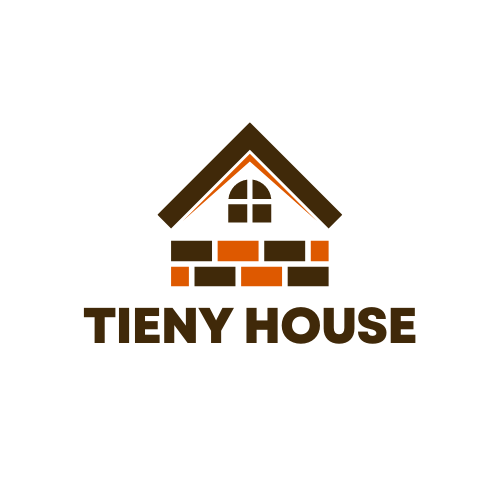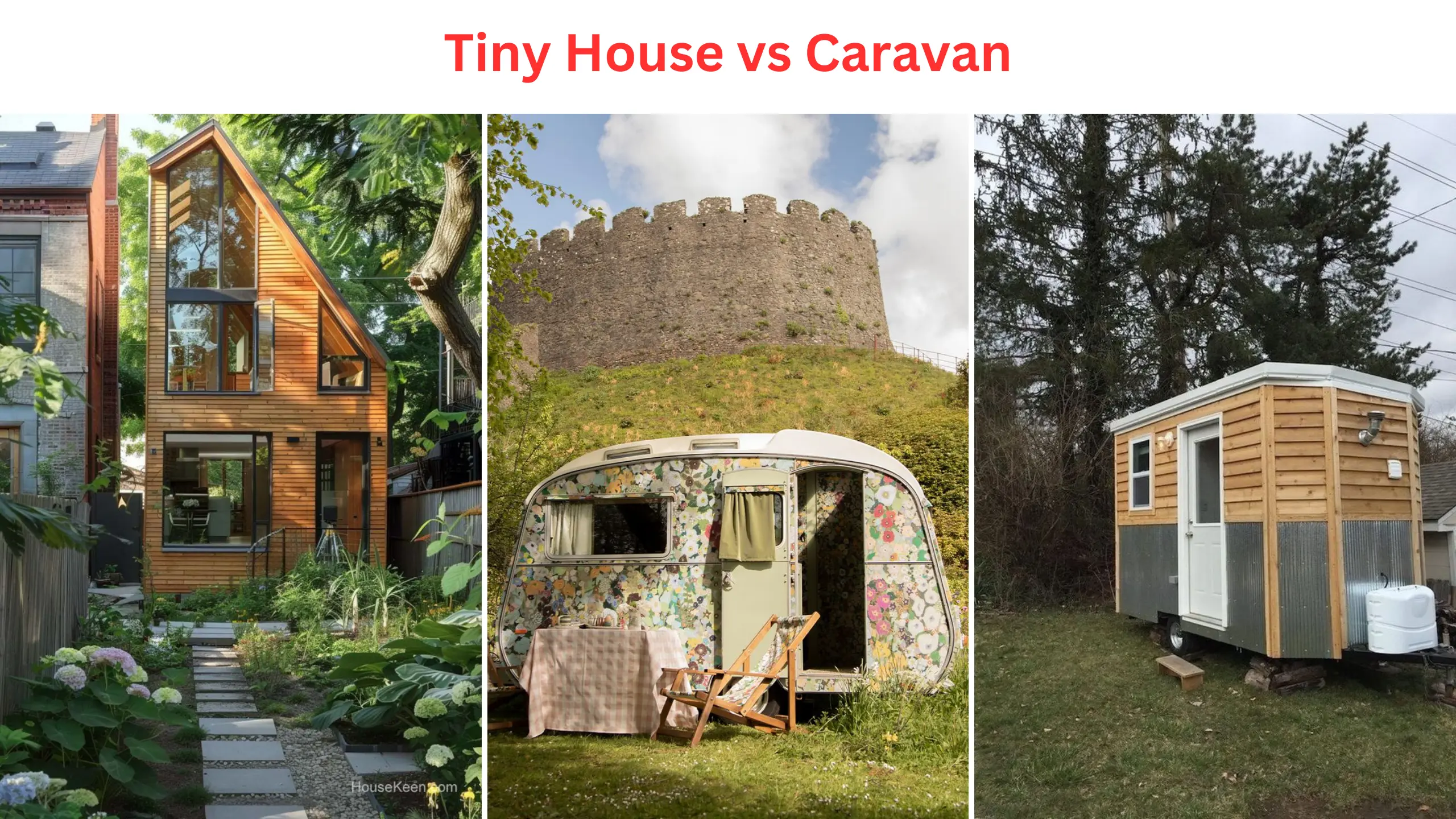Deciding between a Tiny House vs Caravan can be challenging due to the wide range of options available.
“Some individuals refer to a Tiny House on wheels as a Caravan, which offers a way to bypass certain regulations and expenses associated with traditional homes.”
Caravans are generally more familiar and accepted compared to Tiny Houses. However, Tiny Houses may face difficulties in terms of regulations, insurance, and financing, although the popularity of the Tiny House movement is growing in Australia.
Despite both requiring specific brands for financing and insurance, parking arrangements are often similar for both. We’ll talk more about the differences between Tiny Houses and Caravans in this article.
Differences Between Tiny Houses and Caravans
Explore the Contrasts Between Tiny Houses and Caravans.
1: Tiny House vs Caravan Cost on the Road
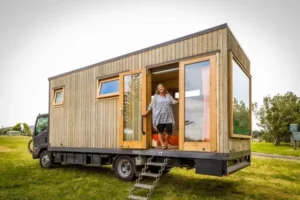
A Tiny House usually starts at around $71,900, and a similar-sized Caravan costs about the same. But living in a Tiny House is cheaper in the long run.
When you’re in a Caravan, you’re often on the move, looking for water, places to dump waste, electricity, and internet. It’s a different kind of adventure compared to living in a Tiny House where you have your own water tank and more freedom.
If you’re not used to staying in a Caravan, try camping for a couple of weeks to see how it feels to be in one place or move around.
You can park a Caravan where you’d put a Tiny House and enjoy staying in one place for longer. The rules are usually the same for Caravans and Tiny Houses on wheels.
So, you can find land, set up utilities, grow a garden, and make it your home. Over time, you’ll see the differences in comfort and design between a Caravan and a Tiny House.
2: Enjoyable All-Day Living In Tiny House and Caravan
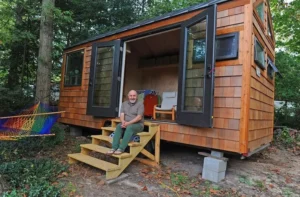
Tiny Homes are for people who want a kitchen and bathroom. You need permission to build them, no matter how small they are. They’re usually meant to stay in one place and need connections to foundations, water, power, waste, and sewer systems.
On the other hand, Caravans feel more like camping. They move around a lot, especially when it’s windy. If you’re okay with basic living and just need a place to sleep and be close to nature, a standard Caravan is a simple and affordable choice.
Think about how long you’ll be in the Caravan, where you’ll go, and what the weather will be like. These things decide what kind of upgrades you might need for your Caravan, like size and features. Think about where you’ll keep your food and how you’ll cook.
Some Caravans are big and have nice kitchens, showers, and even washing machines. They might even have extra spaces that pop out for more beds or living areas. But remember, the bigger the Caravan, the bigger the car you’ll need to tow it.
Some people might choose a Campervan instead, or maybe even a Tiny House on Wheels (THOW) for a cheaper and more eco-friendly home.
3: Tiny House and Caravan Design
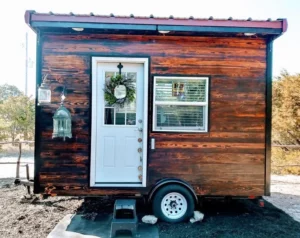
Tiny Houses on wheels aren’t made to be moved around as often as Caravans. They’re not built to be aerodynamic like Caravans, but they’re designed to be comfortable and can be moved if needed.
Caravans are usually made with cheaper, lighter materials and aren’t very well insulated. This means they can get too hot or too cold easily, which can cost more to fix.
Tiny Houses have bigger windows than Caravans, so they get more natural light and airflow. Adding special glass and a covered deck can help keep them insulated and prevent the sun from hitting the outside walls directly.
Caravans are not as customizable as Tiny Houses because they have less space and fewer options from the manufacturer. But you can still find upgrades to make them better suited to your needs.
Tiny House vs Caravan Pros and Cons
Tiny House Pros:
- Tiny Houses offer extensive customization options to suit your needs and preferences.
- Built with high-quality materials, Tiny Houses are durable and sturdy.
- Many prioritize eco-friendly features like energy efficiency and off-grid capabilities.
- Despite higher upfront costs, Tiny Houses can lead to long-term savings on utilities and maintenance.
- Tiny Houses provide a permanent living space, offering stability and ownership compared to temporary accommodations like caravans.
Tiny House Cons:
- Building or purchasing a Tiny House can be expensive upfront, especially when factoring in customization and land expenses.
- The compact size of Tiny Houses may require downsizing belongings and adjusting to a smaller living area.
- Zoning laws and regulations may limit where you can park or build a Tiny House, making it challenging to find suitable locations.
- Building a Tiny House requires specialized skills and knowledge, and navigating building codes and regulations can be complicated.
Caravan Pros:
- Caravans offer unparalleled mobility, allowing you to travel and explore different locations without sacrificing the comforts of home.
- Caravans are often more affordable than Tiny Houses, making them a budget-friendly housing option for frequent travelers or those on a tight budget.
- Caravans come equipped with amenities like kitchens, bathrooms, and sleeping areas, providing convenience and comfort on the road.
- Caravans offer flexibility in travel routes and destinations, allowing you to change plans and explore new areas with ease.
- Caravanning fosters a sense of community among travelers, providing opportunities for socializing and making new friends while on the road.
Caravan Cons:
- Caravans have limited living space, which can feel cramped, especially during extended trips or with multiple occupants.
- Regular maintenance is required to keep a caravan in good condition, including cleaning, repairs, and servicing.
- Caravans may be less insulated and weather-resistant than Tiny Houses, making them more susceptible to extreme temperatures and weather conditions.
- Caravans may depreciate in value over time, especially with wear and tear from frequent travel and use.
- There may be legal restrictions on where you can park or camp with a caravan, limiting your travel options and requiring compliance with local regulations.
Frequently Asked Questions
What Is The Tiny House Vs Caravan Cost?
The cost of a Tiny House compared to a caravan, with a starting price of $71,900, varies based on factors like size and features. Generally, Tiny Houses have a higher initial cost due to their larger size and more permanent construction.
What Are The Main Differences Between Van Life Vs Tiny House?
Van life entails living and journeying in a converted van, which offers mobility but comes with limited space. In contrast, residing in a tiny house offers greater room and customization choices but restricts mobility.
What’s The Difference Between A Tiny House And A Trailer?
A tiny house is a small customized home on a permanent foundation, while a trailer is a prefabricated structure designed for temporary living with limited space.
What’s The Difference Between Tiny Home And Caravan?
Caravans are often made from inexpensive lightweight materials, which lack proper insulation, resulting in difficulties in temperature control and potentially higher energy expenses. In contrast, Tiny Houses typically incorporate larger windows than Caravans, promoting enhanced natural light and airflow.
What Is A Caravan Tiny House?
A caravan tiny house is a compact dwelling that blends the mobility of a caravan with the features of a tiny house, offering both travel flexibility and permanent living space.
What’s The Difference Between Tiny House Vs RV Vs Mobile Home?
A tiny house is a small customized home on a permanent foundation, an RV is a motorized or towable vehicle for temporary living, and a mobile home is a prefabricated structure for temporary or semi-permanent living.
